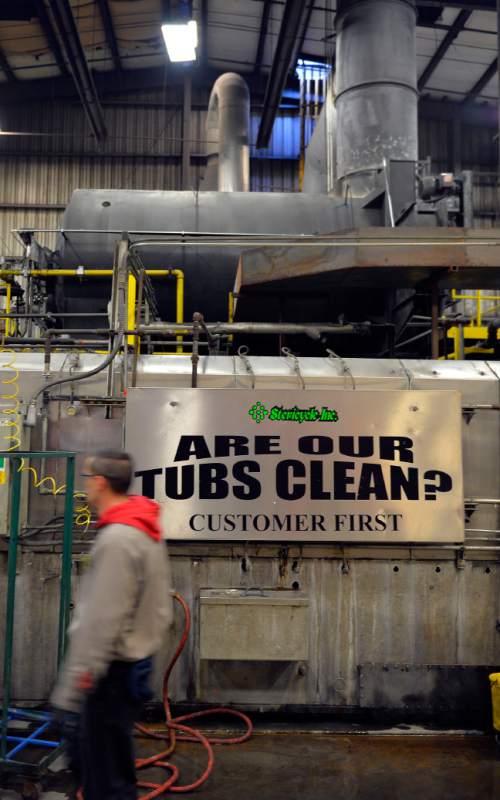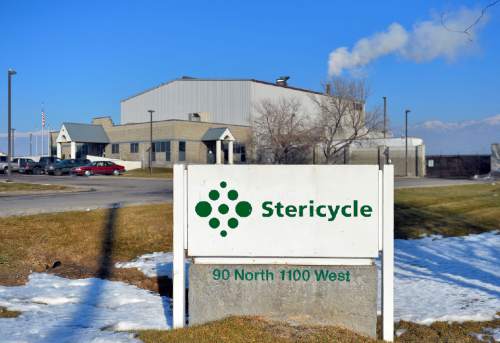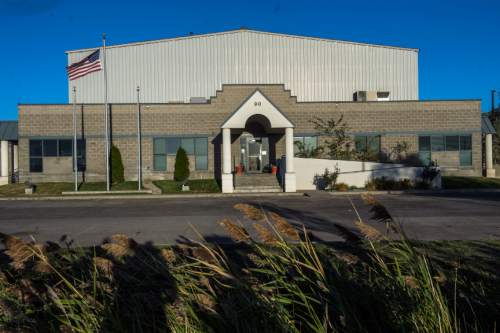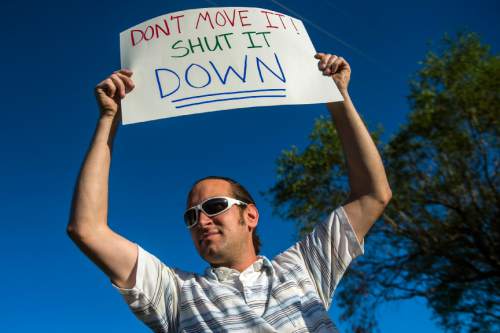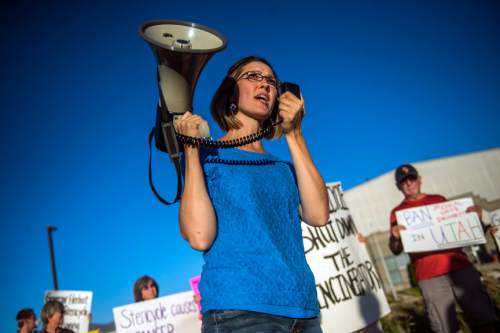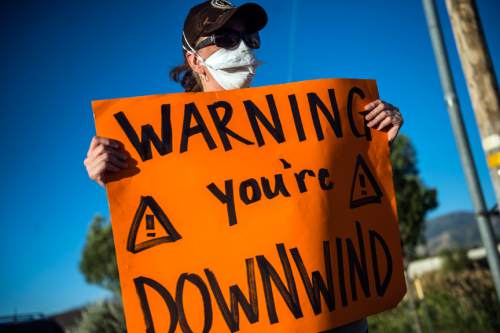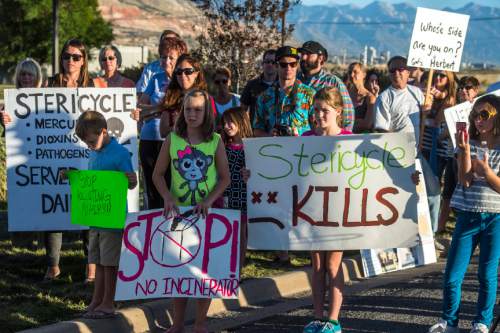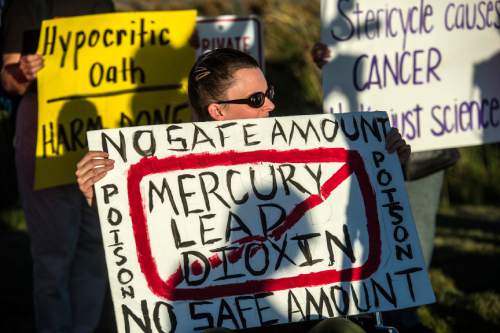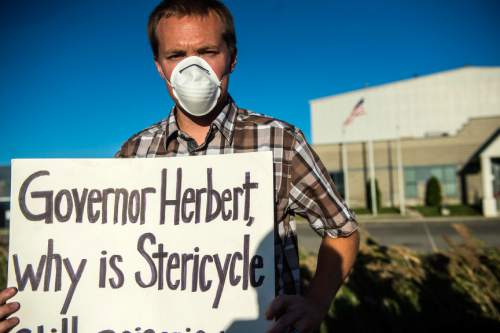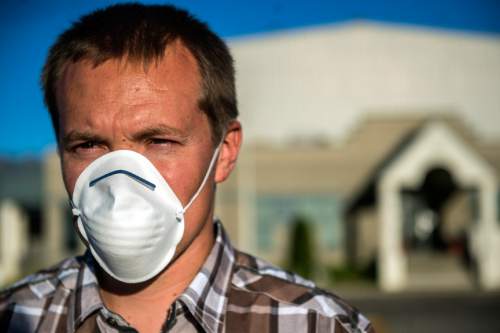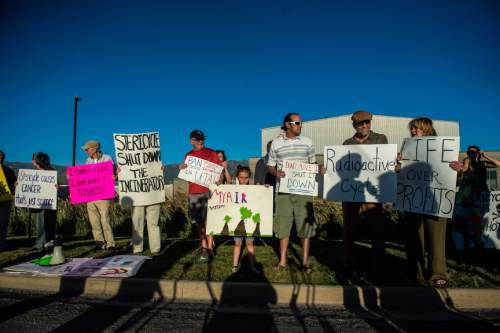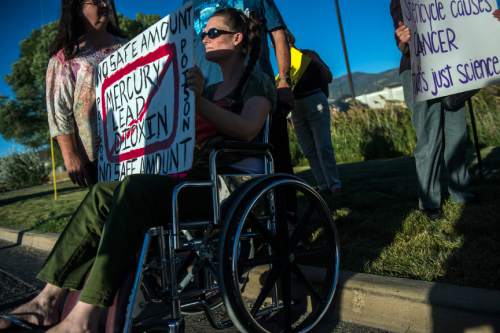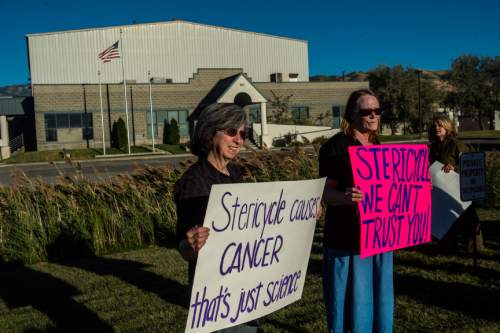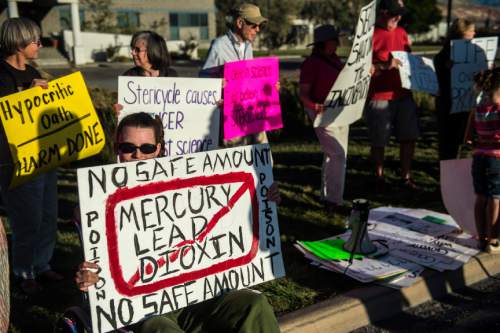This is an archived article that was published on sltrib.com in 2014, and information in the article may be outdated. It is provided only for personal research purposes and may not be reprinted.
In the face of new allegations of misconduct leveled against a North Salt Lake medical waste incinerator, Utah Gov. Gary Herbert on Thursday asked Attorney General Sean Reyes to open a criminal probe.
The governor's announcement came just a few hours before clean-air activists staged a rally outside the Stericycle plant, calling on Herbert to either it shut down or explain why he won't.
Last week, activists revealed an anonymous whistleblower's videotaped claims that Stericycle was improperly burning radiological waste.
"We believe that many of allegations are inaccurate and unfounded, and we believe that we have been operating our facility in compliance with applicable regulations," wrote Stericycle spokeswoman Jennifer Koenig in an e-mail. "However, Stericycle is a company that takes safety and compliance issues very seriously. Accordingly, we have been cooperating with local regulators over the past few weeks, and we will continue to cooperate fully with other state agencies as they conduct their investigations."
A Reyes spokeswoman said they had just received the governor's request and were reviewing it.
Herbert's call for a criminal investigation follows two new investigations launched by the Utah Department of Environmental Quality and the Utah Labor Commission. Regulators are looking into whether the company has violated regulations to protect air quality and worker safety.
All three probes seem to stem from the videotaped statement by a former Stericycle worker who alleges the company forced employees to pluck radioactive material off a conveyor belt before it set off an alarm monitored by the state. Communities for Clean Air, a group formed by residents of North Salt Lake's Foxboro neighborhood, staged a rally featuring the video outside Herbert's office Sept. 17.
"Protecting the health and safety of the public is the governor's primary concern," a statement from Herbert's office said. "By opening a criminal investigation, the state can conduct a more thorough examination of Stericycle's actions."
The statement said the governor wants the investigations to be completed as soon as possible.
"If any of the allegations are ultimately substantiated, he intends to use his full authority to take swift and aggressive corrective action," the statement said.
The governor's office declined to comment further, although staff said Herbert's statement was not released in response to Thursday's rally, where activists demanded his presence. The governor did not plan to send a representative, although activists planned to place an empty chair with Herbert's name on it.
The plant has become the focal point of intense controversy in recent years.
The Foxboro subdivision has grown around the plant since a rezoning in 2002 allowed residential development on old agricultural lands that had previously been zoned for industrial uses.
Neighbors have asked the governor repeatedly to take decisive action against the company after environmental regulators cited the incinerator for violating its permit last year, and Thursday's announcement suggests Herbert is paying attention to their concerns.
"Wow," said Tim Wagner, executive director of Utah Physicians for a Healthy Environment. "I applaud the governor for taking this step."
Physicians founder Brian Moench, however, said he won't rest as long as medical waste is burned in Utah.
"Even if that facility were the best-managed, the cleanest incinerator there is, it's still a public health hazard," he said.
At the Sept. 17 rally, activists alleged radioactive waste, a head and other pieces of human anatomy wound up in the Stericycle incinerator. They showed the video by EnviroNews of a man wearing a bandana and sunglasses. The whistleblower alleged supervisors told him and co-workers to forgo measuring the weight and radioactivity of some waste coming into the plant, especially types believed to be radioactive — a major violation of Stericycle's state permits.
The source also claimed co-workers stole prescription drugs that were bound for the burner.
State regulators have long suspected federal authorities at the U.S. Environmental Protection Agency launched their own investigation in the wake of a notice of violation the Division of Air Quality issued in May 2013, accusing Stericycle of exceeding its emission limits and rigging stack tests to conceal those violations.
As a matter of policy, federal agencies do not confirm or deny whether they are conducting investigations.
The company is formally contesting the state allegations through an administrative review that has shown little progress over the past year. Meanwhile, Stericycle, which operates five other incinerators around the country, is pursing plans to relocate its 25-year-old North Salt Lake plant to a largely uninhabited part of Tooele County near Rowley.
Jewel Allen, a mother of three who leads Tooele County Concerned Citizens, welcomed the state investigations. She expects they will provide more information about the company and potential health risks from the burning waste.
Stericycle has "made a good faith effort" to hear concerns and answer questions from Tooele families, Allen said, but she remains skeptical of its North Salt Lake operations.
"If they don't follow rules there, why would they follow rules here?" she said. "That's a big concern for us in Tooele County."
The Utah Department of Environmental Quality has already increased compliance inspections at Stericycle, now conducted daily. As part of its ongoing permit renewal, Stericycle is to install better emission controls, a back-up generator to minimize emergency "bypass" events which spew smoke over Foxboro during power outages and continuous emission monitors.
Tribune reporter Annie Knox contributed to this story.


